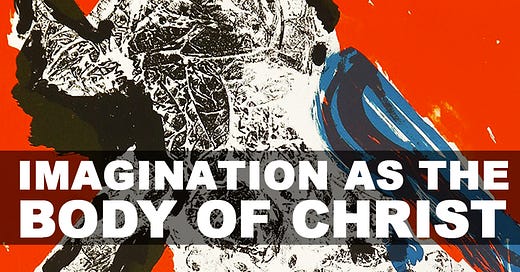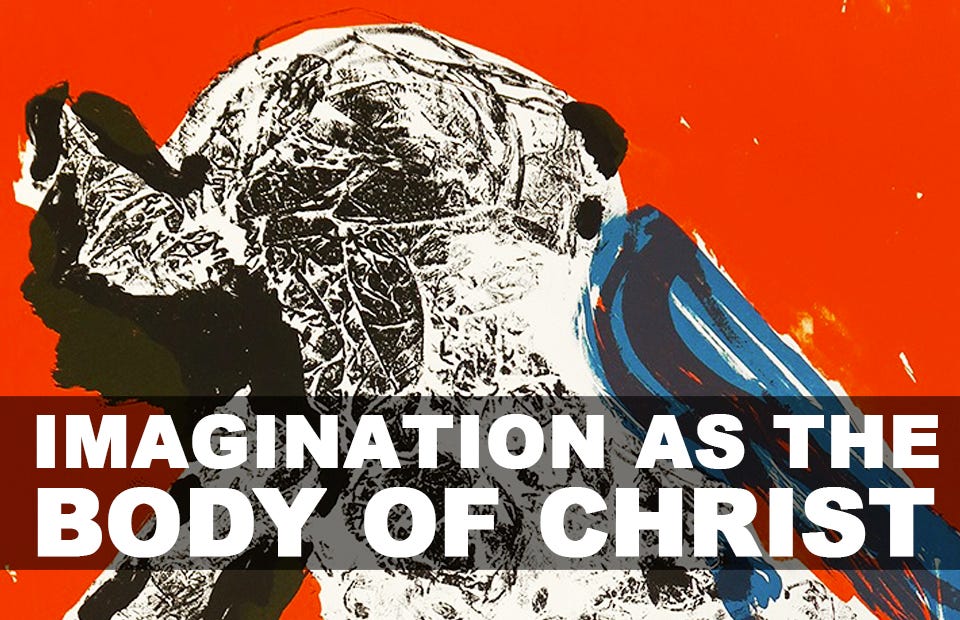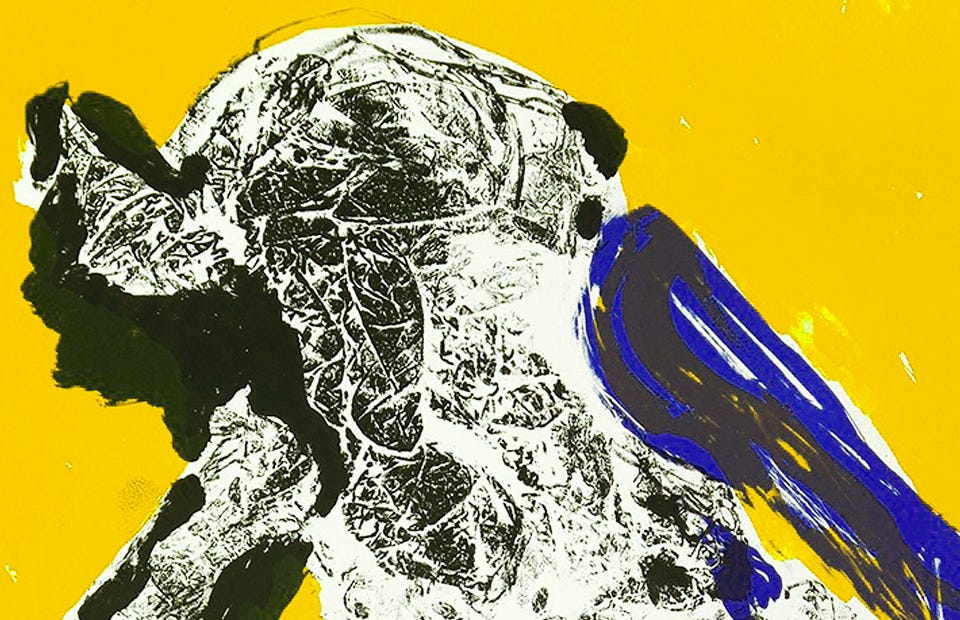Imagination as the Body of Christ
Philosophers and theologians have long understood God as the 'unmoved mover', it is just one more small step to realise that, from the point of view of nous, the unmoved mover is the imagination
... the Human Imagination
Which is the Divine Body of the Lord Jesus. blessed for ever.
Blake, Milton1
I rest not from my great task!
To open the Eternal Worlds, to open the immortal Eyes
Of Man inwards into the Worlds of Thought: into Eternity
Ever expanding in the Bosom of God. the Human Imagination
Blake, Jerusalem2
When Blake says that imagination is the body of Christ, he means it. For years I tried to work out what he meant until it dawned on me that he wasn't speaking loosely or metaphorically. How can imagination be the body of Christ?
Well, from the point of view of mind, or soul, imagination is the ‘unmoved mover’. it is what actually creates the content of the mind, of visions, of experience. It is what we don't control, yet it controls the world we see.
In The Marriage of Heaven and Hell, Blake says that reason is reified, static energy.
Energy is the only life and is from the Body and Reason is the bound or outward circumference of Energy.
Blake, The Marriage of Heaven and Hell3
Blind in Fire with shield & spear
Two Hornd Reasoning Cloven Fiction
In Doubt which is Self contradiction
A dark Hermaphrodite We stood
Rational Truth Root of Evil & Good
Round me flew the Flaming Sword
Round her snowy Whirlwinds roard
Freezing her Veil the Mundane Shell
Blake, For the Sexes: The Gates of Paradise4
The energy is the imagination. Reified, it becomes law, including mathematical and scientific law. Philosophers and theologians have long understood God as the 'unmoved mover', it is just one more step to realise that, from the point of view of mind, the unmoved mover is the imagination.
Aristotle understood this. Also maybe Kant and Heidegger
The reason I’m doubtful about the connection between, say, Jung and Blake, or Neoplatonism and Blake, which is constantly brought up in Blake circles, is that all such identifications are, ironically, attempts to follow Blake ‘to the letter’, when we all know that "the letter killeth, the spirit giveth life".5
Such systems try to devolve Blake's imaginative work back into letters – not literal letters but symbols – which, it is said, we have to be able to read to decipher Blake. The Blake experts are those who can read the symbols according to their system(s).
Blake is more radical than Jung or Plotinus, because he bases everything ultimately on the power of the imagination, while the rest turn the products of imagination into symbols they then 'read' into Blake's images and poetry along with everything else, or they start using the same symbols themselves hoping it will turn them into Blake.
The only thing that can help you read Blake right is the Holy Spirit, and you have to await grace for that to happen – just as the alchemists did when they did their long prayers and meditations before warming up the alembic.
William Blake, ‘The Keys of the Gates #5’, For the Sexes: The Gates of Paradise.
II Corinthians 3:6.







Very stimulating Andy. Your last paragraph reminded me of my Catholic conditioning and how difficult it is to see through it and not with it
; - )
Glad you mentioned the alchemists at the end. The way you described this made me think of how they would communicate their knowledge implicitly through art. Only those who also shared the knowledge would know the meaning of the work, and intellectual analysis would ultimately fail.